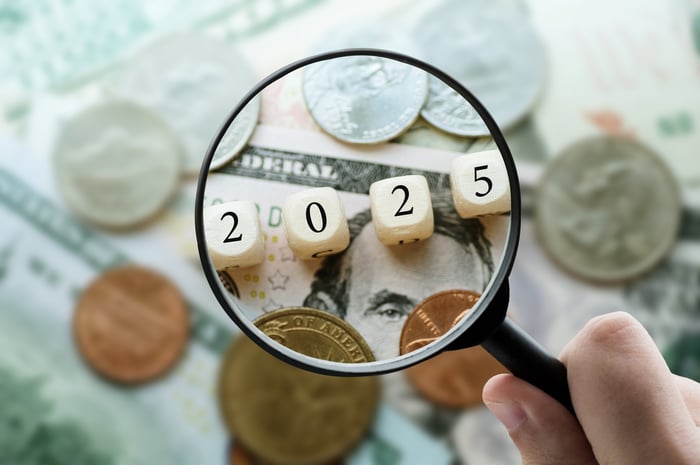Traditional IRAs and 401(k) plans allow workers to save pre-tax dollars for retirement. Any contributions can be deducted from gross income, provided modified adjusted gross income does not exceed limits imposed by the IRS. That results in a smaller tax bill at the time, but taxes cannot be delayed indefinitely.
Required minimum distributions (RMDs) are mandatory withdrawals investors must make from traditional IRAs and other tax-deferred retirement accounts on an annual basis. Importantly, the Secure 2.0 Act passed in 2022 modified certain RMD rules. Here are two particularly important changes that were implemented recently that every investors should know before 2025.

Image source: Getty Images.
RMDs begin at age 73 for individuals born in 1951 or later
Traditionally, required minimum distributions (RMDs) have started at age 70 and 1/2 (born before July 1949) or age 72 (born between July 1949 and December 1950). But the Secure 2.0 Act increased the starting age to 73 for individuals born in 1951 or later. The RMD rules apply to account holders and beneficiaries of the plans listed below:
- Traditional IRAs
- SEP IRAs
- SIMPLE IRAs
- 401(k) plans
- 403(b) plans
- 457(b) plans
- Profit sharing plans
- Other defined contribution plans
In most cases, RMDs have to be completed before Dec. 31 each year, but there are exceptions to the rule. For instance, the first RMD can be delayed until April 1 of the following year. But individuals that delay the first RMD must still take the second RMD by Dec. 31 of that same year.
Here is what changed in 2024: Individuals born in 1951 or later have to start taking RMDs from tax-deferred retirement accounts annually during the year in which they turn 73. Importantly, the first RMD can be delayed until April 1 of the following year. That means anyone that turned 73 in 2024 has to complete their first RMD by April 1, 2025. However, whether or not the first mandatory withdrawal is delayed until April, the second one must be completed by December 31, 2025.
Roth 401(k) plans and Roth 403(b) plans are no longer subject to RMD rules
Designated Roth accounts in 401(k) and 403(b) plans were subject to RMD rules in 2023, but that changed in 2024 due to the Secure 2.0 Act. Specifically, the IRS no longer requires account holders of those plans to make withdrawals during their lifetimes. However, their beneficiaries (even Roth IRA beneficiaries) must still follow the RMD rules.
Importantly, individuals that fail to withdraw the full RMD amount before the due date are subject an excise tax. That essentially means they forfeit a percentage of the amount not withdrawn, and must still take the full RMD. The excise tax was 50% prior to 2023, but was reduced to 25% by the Secure 2.0 Act. It can be further reduced to 10% if the error is fixed within two years. Anyone in that position must file a Form 5329 with their federal tax return for the year the RMD was required but not taken.
Here is what changed in 2024: Roth 401(k) and Roth 403(b) plans are no longer subject to RMD rules while the original account holder is alive. But once the account holder dies, the beneficiaries are subject to RMD rules. Additionally, as of 2023, failure to complete an RMD within the allotted time no longer results in a 50% excise tax. Instead, the penalty is 25%, and that figure can be further reduced to 10% if the problem is corrected within two years.
The $22,924 Social Security bonus most retirees completely overlook
If you’re like most Americans, you’re a few years (or more) behind on your retirement savings. But a handful of little-known “Social Security secrets” could help ensure a boost in your retirement income. For example: one easy trick could pay you as much as $22,924 more… each year! Once you learn how to maximize your Social Security benefits, we think you could retire confidently with the peace of mind we’re all after. Simply click here to discover how to learn more about these strategies.
View the “Social Security secrets” »
The Motley Fool has a disclosure policy.
 theblock.co
theblock.co fool.com
fool.com benzinga.com
benzinga.com